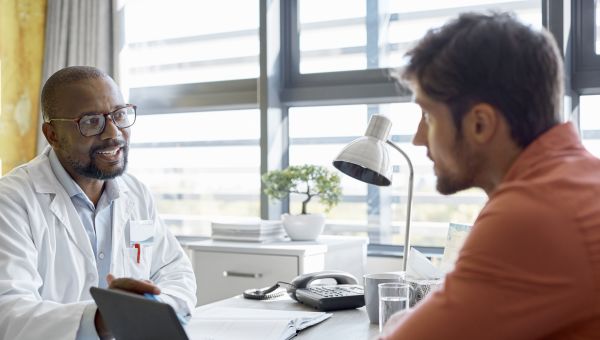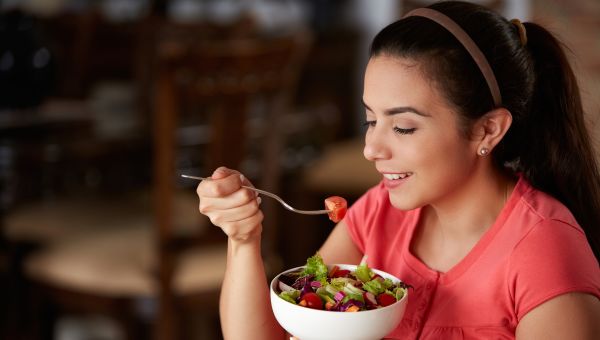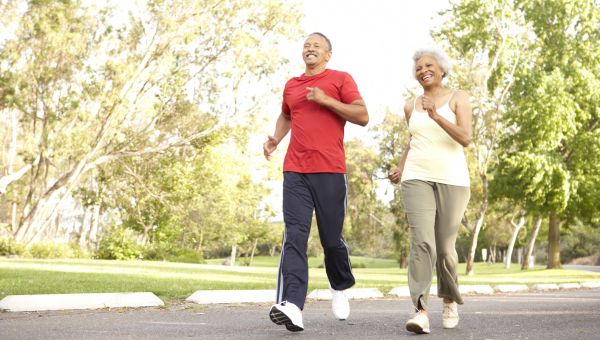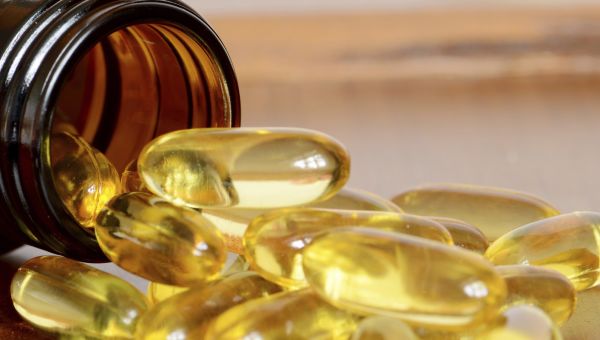4 ways to decrease your risk of colon cancer
Having regular screenings is essential for preventing colon cancer, but healthy habits can also lower your risk.

When it comes to preventing colon cancer, which affects the large intestine, screenings are essential. That’s because during a screening test, your healthcare provider (HCP) can detect and remove precancerous growths many years before they may develop into cancer. But scheduling regular screenings isn’t the only way to help lower your risk of colon cancer. There’s plenty… Show More
When it comes to preventing colon cancer, which affects the large intestine, screenings are essential. That’s because during a screening test, your healthcare provider (HCP) can detect and remove precancerous growths many years before they may develop into cancer. But scheduling regular screenings isn’t the only way to help lower your risk of colon cancer. There’s plenty of evidence that healthy lifestyle habits—including what you eat and how active you are—can also play an important role. Here are 4 things that may help lower your risk of colon cancer.
Show Less
Eat more vegetables, less red meat
For a cancer that involves your digestive tract, it makes sense that what you eat can impact your risk. And there’s plenty of evidence that a diet that’s high in fruits and vegetables (as well as whole grains) can lower risk of colon cancer. Studies suggest that the high-fiber content of these… Show More
For a cancer that involves your digestive tract, it makes sense that what you eat can impact your risk. And there’s plenty of evidence that a diet that’s high in fruits and vegetables (as well as whole grains) can lower risk of colon cancer. Studies suggest that the high-fiber content of these plant-based foods contributes to the protective effect. Some researchers say it may also be due to certain cancer-fighting phytochemicals (plants chemicals that may have an impact on health) in produce and whole grains. To reduce your colon cancer risk, aim to cut back on the amount of red meat and processed meats (like bacon and hot dogs) you eat every week. Many studies have found a link between these meats and a higher risk of colon cancer. Healthier alternatives include poultry, beans, and fish.
Show Less
Aim for regular exercise as you are able
Several studies suggest that increasing your level of activity can lower your risk of developing colon cancer. Doing some kind of moderate level activity like brisk walking or dancing for 30 to 60 minutes every day has been linked to lower risk, but you can lower your risk even more if you engage… Show More
Several studies suggest that increasing your level of activity can lower your risk of developing colon cancer. Doing some kind of moderate level activity like brisk walking or dancing for 30 to 60 minutes every day has been linked to lower risk, but you can lower your risk even more if you engage in something more vigorous. like jogging or swimming. Why is exercise protective? One theory is that being physically active speeds up the passage of food through your digestive system which decreases the time that your colon is exposed to potential cancer-causing substances (carcinogens).
Show Less
Aim to manage your weight
Carrying extra pounds can increase the risk for several types of cancer, but the evidence is particularly strong for obesity and increased risk of colon cancer. Numerous studies have shown that being overweight or obese raises the risk of being diagnosed with colon cancer. People who are obese are… Show More
Carrying extra pounds can increase the risk for several types of cancer, but the evidence is particularly strong for obesity and increased risk of colon cancer. Numerous studies have shown that being overweight or obese raises the risk of being diagnosed with colon cancer. People who are obese are also more than twice as likely to die from colon cancer as those who are at a healthy weight. Lifestyle factors that can help you lose or manage your weight—eating a healthy diet and getting regular exercise as you are able—are also known to lower your risk of colon cancer.
Show Less
Get enough calcium and vitamin D
Calcium is important for strong bones, and it can also help lower your risk of colon cancer. Several studies suggest that getting enough calcium (preferably from foods like low- or nonfat dairy, almonds, or leafy greens) can help reduce your risk of developing precancerous growths (called polyps)… Show More
Calcium is important for strong bones, and it can also help lower your risk of colon cancer. Several studies suggest that getting enough calcium (preferably from foods like low- or nonfat dairy, almonds, or leafy greens) can help reduce your risk of developing precancerous growths (called polyps) in the colon. There’s also evidence that vitamin D may help lower cancer risk. A study by researchers at the Dana-Farber Cancer Institute in Boston suggested that vitamin D may help prevent colon cancer by helping your immune system prevent the growth of cancer cells.
Show LessMore On


video

article

slideshow


video


video
